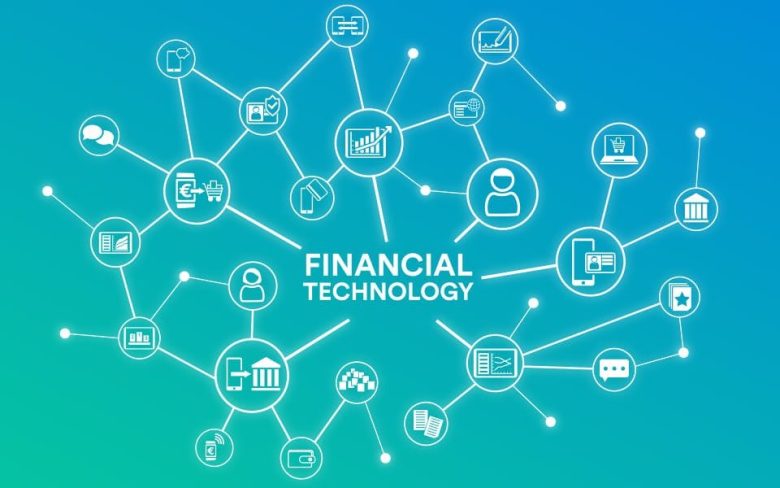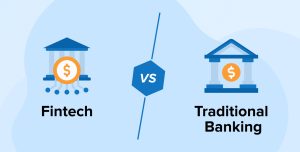Fintech refers to the use of technology by financial institutions to improve customer experience and delivery. This innovation has changed the way we manage, invest, save, and spend money. From mobile banking apps to digital wallets and robo-advisors, fintech is everywhere. It simplifies complex financial activities, removes dependency on banks, and makes financial services more accessible to everyone. Combining artificial intelligence, blockchain, and big data, fintech is changing the financial industry beyond apps and websites.
The Evolution of Fintech
Fintech has made enormous strides in the past few decades. Initially, the term was used to describe the back-end technology of banks and financial institutions. Since the beginning of the 21st century, the situation has changed. With the popularization of smartphones, the internet, and global digitalization, the rules of the game have changed. Fintech is starting to focus on customers. PayPal, Venmo, and Square have redefined the payment system, while startups and digital enterprises have challenged traditional banking. Fintech now encompasses mobile banking, P2P lending, crypto exchanges, and insurance technology, demonstrating the booming market.
How Fintech is Changing Banking
Fintech has had a significant impact on the banking industry. Traditional banks need to adapt quickly to survive in the digital age. Mobile banking apps allow customers to check accounts, transfer money, and apply for loans without having to visit a branch. Neobanks, or online-only banks, have emerged. With lower operating costs, new banks offer better interest rates and fees. A more competitive banking environment forces established banks to improve customer service, lower prices, and offer new services to compete.
Payments and Transfers: Fintech
Fintech has revolutionized money transfers. Long queues for money transfers have become obsolete. PayPal, Cash App, and Zelle allow customers to transfer money instantly via email or phone. Wise (formerly TransferWise) and Revolut make international money transfers cheaper and faster. Cash payments at the register have become the industry standard, thanks to Apple Pay and Google Pay. Fintech is admired for its speed and convenience.
Fintech Simplifies Investing
Fintech has also helped democratize investing. Investing was once limited to those with large sums of money or financial advice. Robinhood, Acorns, and Stash have made investing with a few dollars accessible to everyone. Robo-advisors use algorithms to provide low-cost investment advice and portfolio management. These systems tailor investment strategies to your financial goals and risk appetite, making professional investment management accessible to everyone. This trend has enabled millions of people to invest in stocks and build wealth.
Personal Finance Management and Fintech
Fintech has made managing personal finances easier than ever. There are many apps on the market that help you track your spending, create budgets, and manage debt. Mint, YNAB, and PocketGuard provide real-time financial insights, making money management easier. Many of these apps automatically categorize expenses into bank accounts and credit cards. Insights and automation help people make smarter financial decisions and achieve their goals. Such automation helps people avoid debt and save better.
Fintech for Credit and Loans
Fintech has also disrupted the lending industry. Credit checks, long wait times, and piles of paperwork are typical features of traditional loans. Today, fintech lenders like LendingClub, Upstart, and Prosper offer faster and easier online loans. These institutions use alternative data and machine learning algorithms to determine creditworthiness and approve loans within minutes. Most banks ignore customers without credit history, while some banks do cater to them. Fintech makes finance more inclusive and efficient, allowing more people to get loans to improve their financial situation.
The Benefits and Risks of FinTech
Fintech offers convenient, affordable, accessible, and customized financial services. It has given millions of people access to financial services, especially in poor countries without traditional banking infrastructure. However, fintech also comes with risks. Users exchange sensitive financial data online, leading to privacy and cybersecurity issues. As governments try to keep up with the pace of innovation, regulatory issues arise. Users need to stay informed, take appropriate digital security measures, and understand the terms and conditions of fintech services.
The Future of Fintech
As technology advances, fintech has a bright future. With the development of artificial intelligence, the automation of financial tasks and the improvement of financial insights will become increasingly important. Open banking allows third-party applications to access banking data with user authorization, allowing for more personalized financial solutions. Decentralized finance (DeFi), which uses blockchain technology to reshape the financial system, may also gain popularity. As digital currencies become more popular and regulations increase, fintech will continue to evolve and change money. Future innovations will make the financial sector faster, smarter, and more inclusive.
Conclusion
Fintech is digitizing financial services and changing the way we use money. Fintech makes payments, financial management, investing, and insurance faster, easier, and simpler than ever before. A more inclusive financial system enables individuals and businesses to manage resources more efficiently. The fintech sector is still developing and carries greater risks but also has great potential for development. As technology advances, fintech will become more integrated into our daily lives and change the way we view finance.
FAQs
1. What is fintech?
Fintech (FinTech) refers to the use of technology to deliver financial services.
2. Is it safe to use fintech?
Most fintech services use encryption and other security measures, but consumers should use trusted apps and pay attention to digital security.
3. Can I use fintech without a bank account?
Some fintech apps offer digital wallets or prepaid cards that don’t require a bank account.
4. How do I begin using fintech services?
To begin, download and sign up for a fintech app, such as a mobile banking, investing, or budgeting app.
5. Are fintech services free?
Many fintech services are free or low-cost, but read the fine print to find out what the costs are.




